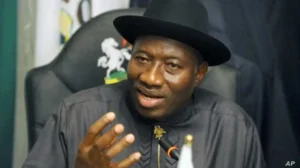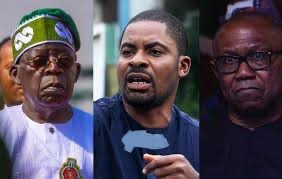Igbo Apex Body Takes Bold Stand on 2027 Presidency.
The Ohanaeze Ndigbo, the foremost socio-cultural organization of the Igbo people, has announced that no candidate of Igbo origin will run against President Bola Ahmed Tinubu in the 2027 elections, a move that has stirred the political landscape. The announcement, made by the group’s Secretary-General, Okechukwu Isiguzoro, was presented as a deliberate gesture of national unity.
Ohanaeze characterized the move as a gesture of patriotism, stating that challenging Tinubu’s re-election bid would be –
“unpatriotic and a recipe for anarchy.”
According to the group, there is an unwritten “gentleman’s agreement” among Nigeria’s political elite that presidents should be allowed to serve two terms. By stepping aside now, Ohanaeze believes it is preserving national stability and laying groundwork for future power rotation.
Eyes on 2031: A Bigger Play for the Presidency
The Igbo group insists this move is not an abandonment of the Igbo quest for the presidency but a strategic postponement.
Ohanaeze has shifted its focus to 2031, aiming to secure the South-East’s turn at Nigeria’s highest office once President Tinubu is expected to complete his two-term tenure.
The plan rests on forging long-term alliances, particularly with the South-West, to ensure that an Igbo candidate emerges as a consensus choice when the next opportunity comes.
The announcement has sparked divided opinions. Supporters hail it as a pragmatic strategy that favors coalition-building over head-on confrontation. Critics, however, challenge Ohanaeze’s authority to speak for all Igbos or to curtail individual ambitions in a democratic system. Some see it as a hasty political retreat made without any guarantees, while others warn that such sweeping declarations could undermine electoral freedom and weaken democratic competition.
Conclusion.
Ohanaeze’s bold declaration has certainly shaken the table in Nigeria’s political discourse. While some interpret it as a calculated sacrifice meant to strengthen the Igbo bargaining power for 2031, others view it as premature surrender that may cost the region dearly. The real test lies in whether this gamble will truly secure the South-East’s long-awaited turn at the presidency or leave the Igbo people sidelined yet again.
But where do you stand? Is Ohanaeze playing the long game with a masterstroke of political strategy, or has it handed away the Igbo bargaining chip too soon? Should any group have the authority to decide who contests in a democracy? And most importantly, come 2031, will this sacrifice pay off, or will history repeat itself?
Like Our Story ? Donate to Support Us, Click Here
You want to share a story with us? Do you want to advertise with us? Do you need publicity/live coverage for product, service, or event? Contact us on WhatsApp +16477721660 or email Adebaconnector@gmail.com




